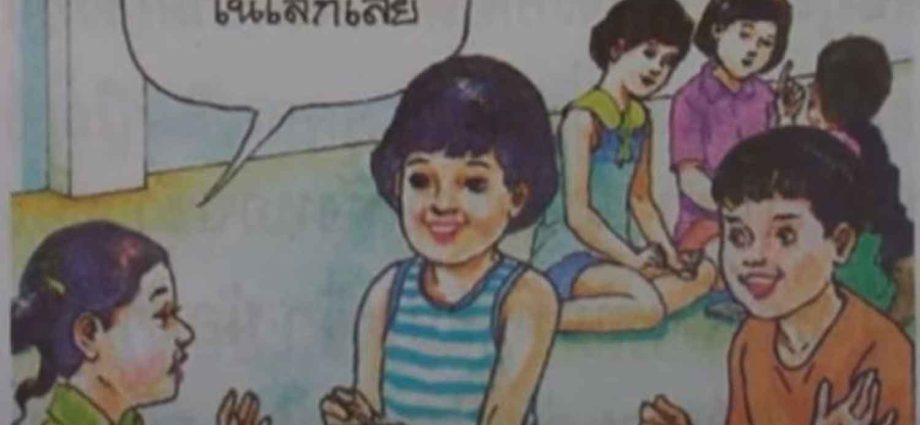Lesson for primary students ‘romanticises malnutrition’, say critics

A Thai textbook designed by the Bureau of Academic Affairs and Educational Standards has come under criticism online and from academics who say it contains misleading lessons for fifth grade students.
A blogger whose Facebook page is called “Madame Kashmir” said the textbook Pasa Patee contains a reading exercise that tells the story of a girl from a privileged background whose perspective on life changes after she visits an orphanage.
The protagonist was let down by her parents because they did not agree to buy her a mobile phone. Later, her orphaned classmate invited her to see the orphanage and live like an underprivileged kid for one day.
About 20 people at the orphanage share a meal which includes stir-fried water spinach. Everyone is given half a boiled egg to enjoy with a plate of rice and fish sauce.
At the end, the protagonist feels overwhelmed with gratitude. She appreciates that orphaned kids can still find simple happiness in life despite their poverty.
Jiraruj Chomcheoy, a paediatrician specialising in respiratory diseases, on Saturday said the meal depicted in the story is a romanticised idea of malnutrition.
“Does [the meal] contain enough nutrition for children at that age?” he wrote. “Food should not only be sustaining or delicious. Proper nutrition will improve children’s brain development, body growth and immunity.” Dr Jiraruj said the lesson does not benefit the younger generation.
Meanwhile, netizens say half a boiled egg contains only 1.75 grammes of protein while adolescents are required to have an intake of protein of 1 gramme per 1kg of body weight.
Wiroj Lakkhanaadisorn, a Move Forward Party MP candidate, said he also found the reading excerpt from Pasa Patee problematic. “Not only does the textbook romanticise an undernourishing meal for children, it also suggests they should give up on building a better quality of life,” he tweeted.
Mr Wiroj said the government should stop spending on overpriced military equipment and transfer the money to help with school lunch budgets.
A primary teacher also remarked the lesson sends the wrong message to students. “Self-sufficiency is good but it does not always apply to quality of life. Everyone wants to afford proper food and home facilities to live comfortably,” said the teacher.

